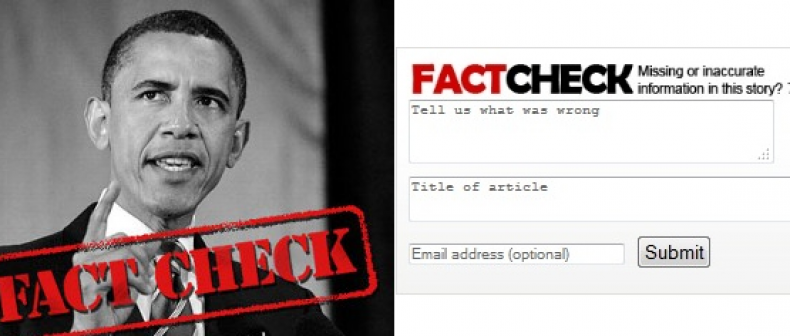
I have a few Americans on my Facebook page, and they seem quite het up about this election of theirs. A couple of these Facebook Americans are Republicans, and one posted something on her wall a couple of weeks ago about the various rights President Obama’s healthcare plan would deprive Americans of, and the various incursions into their private lives it would make.
Being from a country that has more or less universal healthcare, I figured a few of these sounded off, so I took a phrase from the post and stuck it into Google. The usual 0.04 seconds later, it spat out a Snopes entry. It was a document that had been circulating in various forms since 2009, and its points were either false or exaggerated.
I posted the Snopes link on my friend’s wall, and she took the post down apologetically, telling me the friend she got it from, let’s call her Laura, usually did very good research.
So when Laura posted something else on my friend’s wall related to White House salaries, I did the same thing: cut and pasted a phrase from it, Googled it, and 0.04 seconds later, got a very cool factcheck.org return that thoroughly debunked it. I posted that on Laura’s wall, and she took the post down.
While I was on Laura’s wall, I noticed another post, one of those jpeg quotation cards that said a government powerful enough to give you everything you want is also big enough to take away everything you have. It was attributed to Thomas Jefferson. The sentence’s straightforward parallel structure made it seem unlikely to have been written in the 18th century, and 0.04 seconds later, I had the speech it did come from, given by Gerald Ford in 1974. I commented, with the link. A few minutes later, my comment was deleted, and the quotation was untouched. Last time I checked, it was still there.
There’s a Latin phrase, hauled out from time to time by especially jaundiced people — one pictures them mostly wearing monocles — that goes “mundus vult decipi.” It means the world wants to be deceived. I don’t usually go around thinking it’s anything other than a condescending jab at the masses. I live my days under the assumption that the world wants to know what’s what. A happy career in journalism might be a difficult thing to sustain otherwise.
But this little microcosmic experience made me wonder whether the allure of a well-turned phrase with an attractive provenance isn’t magnetic enough to make us think that if it’s not literally true, it’s at least morally true, that it’s truthy, that it states something that is true in a way that will do the job of spreading that basic truth more effectively than if its true provenance, whether it be from President Ford or just some articulate guy with a Facebook account, were acknowledged.
That got me wondering about the nature of truth and fact, about the pseudofactual qualities we attribute to either well, or at least prominently expressed sentiment, and about the evils of the quotation.
I was thinking about these high-end sound bites when I finally got around to watching Michael Moore’s Capitalism: A Love Story. During the closing credits, Moore sticks a couple of them in, one from John Adams, another from Ben Franklin. So I looked them up. Neither survived the reintroduction of its original context. It’s not just a right-wing thing.
We’re less liable to this sort of deception in Canada, given the fact that most of us can’t even name one founding father. In the States, the words of Jefferson, Adams, Franklin and pals have over the years assumed the power of gospel. Every word attributed to them becomes foundational wisdom, despite the fact that they didn’t speak in sound bites, they spoke and wrote in rather long disquisitions, often turning back on themselves midstream, airing this or that proposition before deciding against it, or following up one apparently absolute statement of principle with a series of sometimes serious limitations. A good rule of thumb: If someone tells you Thomas Jefferson said something, assume he didn’t mean it.
Early on in the history of journalism, newspapers and magazines quoted speeches in full. It could make for a long and sometimes tedious story, but you had the context all right there for you to decide what was meant by what was said. This persisted right up until the end of the 19th century, when stories started getting shorter and snappier. Since then, we’ve got into the habit, whether we’re reading or watching, of believing that the bit the reporter or editor or producer has decided to give us is representative of the speaker’s meaning. We have come to trust these filters so much, in fact, that when some quoted person or other accuses the media of taking their words out of context, we immediately think they’re whingeing.
Not often enough, but sometimes, a Jon Stewart will pop up to pick apart a Fox, but you may have noticed the Star doesn’t call the Globe on things, or vice versa. But at least these folks are, for the most part, experienced pros. Amateurs present a more serious problem. There was a flutter in the media a few years ago when it came out that a large proportion of the younger demographic was getting most of its news from Stewart. But more recently, the numbers of us who get our information from links and other snippets we find on Facebook and Twitter are increasing. I get more than half of what I read in a day this way. And since we pick who we friend and follow, this can turn into an echo chamber, bespoke news and views cut to fit our assumptions and prejudices.
But, like Homer Simpson’s beer, the Internet is both the cause of and the solution to all our problems in this regard. It’s never been easier to disseminate half truths and outright lies. But it’s also never been easier to check them. These things generally come in packaged form, like Laura’s Republican propaganda, so for the most part, you don’t have to do anymore than I did: Cut and paste any given phrase from the bit into Google and see what comes back. The secret is not to only do it with stuff you disagree with or think may be false. Do it with the stuff that perfectly aligns with your beliefs, the quote from Harper, the proposed legislation from the NDP or the bit about that BP CEO going to watch the yacht races in the middle of the spill. You don’t have to be like Toronto Life‘s researchers, who can spend hours verifying an address or CV.
Propagandists aren’t terribly clever and they don’t usually put much effort into their craft. They tend to rely on the fact that people are lazy, and will believe any material that bolsters their worldview. For the most part, they’re right. But that’s the easiest thing in the world to change. Just give it 0.04 seconds of your time.
________
Bert Archer writes for Toronto Standard. Follow him on Twitter: @bertarcher.
For more, follow us on Twitter: @TorontoStandard, or subscribe to our newsletter














